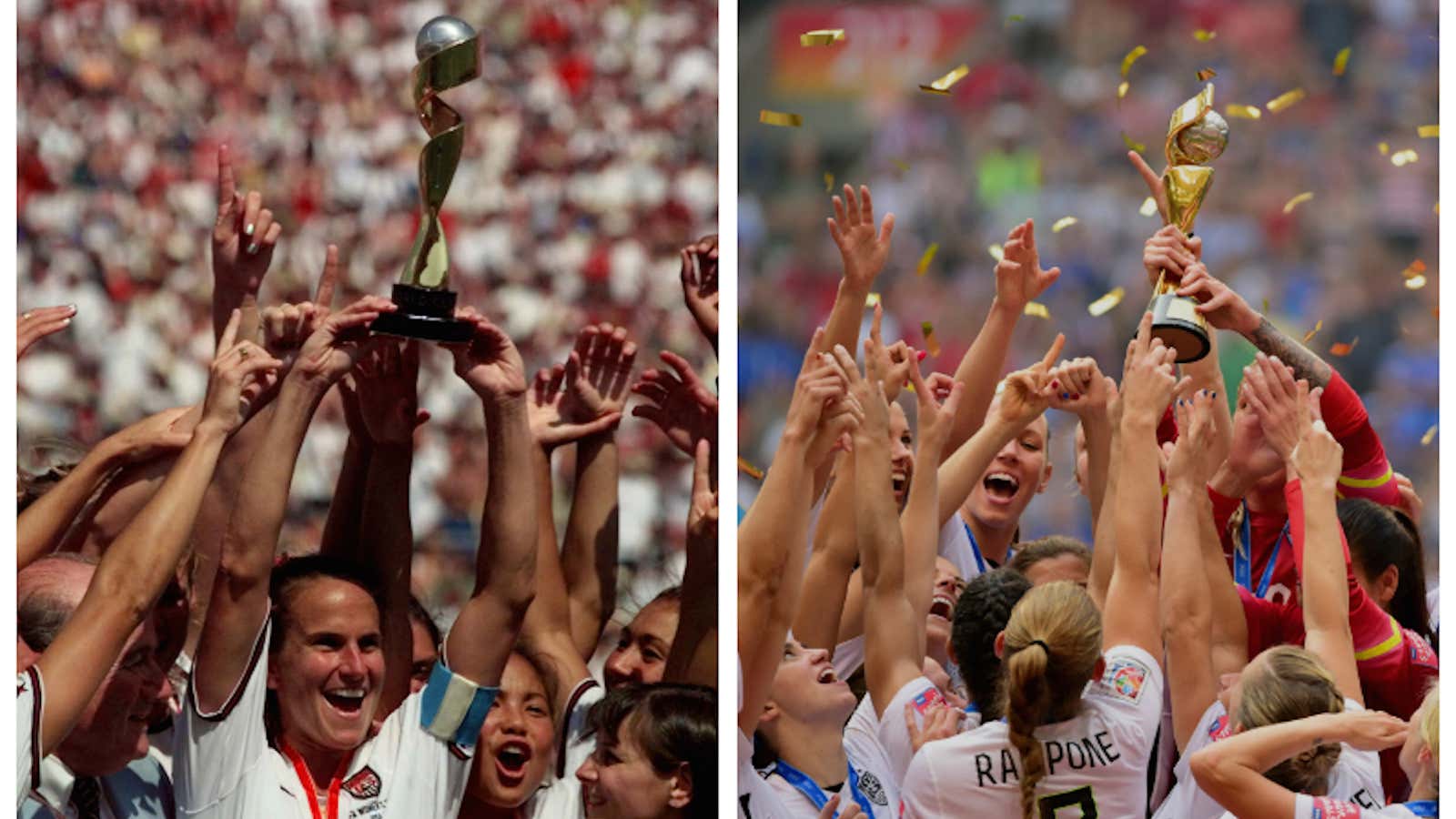Around the 30th minute of the Women’s World Cup final—Carli Lloyd had already scored from 55 yards out to earn the fastest hat trick in World Cup history—I pulled out my phone and texted my old soccer coach.
“I love you, coach,” I told her. “Thank you for teaching me how to play soccer.”
It was a brief exchange, but I know she knew what I meant. Because when I was 14 years old Coach Kristy taught me how to dribble a ball, make a run, shoot with my left foot. But more than that, she taught me to be proud of who I was, to hold my head up after a loss and be gracious to my opponents after a win, to stand tall in the face of challenges that can at times feel unending.
And when, many years later, I finally worked up the nerve to tell her I was gay, she just smiled and said, “What took you so long to tell me?”
But it’s likely I would never have even tried out for Coach’s team had I not witnessed the 1999 World Cup. Watching Mia Hamm and her teammates hoist their golden trophy was a seminal moment for me, as it was for so many other young girls across the US. We saw these fearless women and knew that we could be fearless, too, that we weren’t inherently weaker or inferior.
Sixteen years later and that unbridled optimism, that sense of limitless potential that I felt, has faded. I don’t always remember the lessons Coach taught me back home in Penryn, California, or the ones I learned from “The 99ers.”
Systemic sexism endures, and a win for women’s soccer can’t solve that—even if the athletes were paid fairly and FIFA promoted them equally and brands finally realized their sponsorship value. Not 24 hours after Abby Wambach and Christie Rampone raised their own golden statue in a shower of confetti, a man told me that women’s soccer was objectively not as good as men’s.
And yet, Sunday’s win meant something. At least 21 million Americans watched the final on network TV this year—more than the number who tuned in to watch Germany beat Argentina in last year’s men’s final.
They watched a dominant US side stun Japan with a succession of quick goals, and never lose its stride. Beyond athleticism, they saw play out on that field that mirrored the very same qualities that Coach Kristy taught me to aspire to.
They watched the Cup’s best player, Lloyd, take off her captain’s armband and give it to the squad’s veteran, Wambach, a woman who lead her team to a gold medal in the 2004 Olympics on the way to becoming the all-time leader in international goals, but had never won a World Cup.
They watched Wambach, one of two openly lesbian players on the team, celebrate with a post-game kiss that made headlines around the world.
For the next generation of girls—and boys—who watched the final, this could prove to be an even more important moment than the 1999 World Cup—but they, like me, will need to make sure those lessons are reinforced and capitalized on in real life.
We can’t let the momentum of this win go to waste. The next generation of young girls deserve to grow up in a world where they know they are equal to men—in all senses of the word. They deserve to grow up in a world where a gay athlete kissing his or her spouse on national television is no longer considered “groundbreaking.“
Sunday’s match sent those young people an important and enduring message: You are strong, you have value, you aren’t less than. And for the first time in years, I remembered how it felt to believe that, too.
